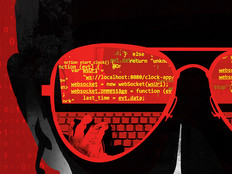Mobile Device Management Helps IT Secure Smartphones
The Redlands Police Department in California relies on a fleet of nearly 200 Apple iPhones and iPads, making mobile-device management (MDM) software essential for overseeing its smartphones and tablets. Last year, the law enforcement agency deployed MobileIron's MDM platform primarily to ease the task of rolling out apps to iOS devices in an enterprise environment, says Dr. Travis Taniguchi, criminologist with the city of Redlands Police Department.
"We've been developing mobile apps, and we use MobileIron to deploy these apps to officers and civilians," Taniguchi says. Those applications include crime mapping for analysis of crime data based on location, and another for field interviews that can upload data from mobile devices to the agency's records management system.
Taniguchi, who also handles app development for the department, explored MDM tools from MobileIron, Sybase Afaria and Symantec. "MDM solutions basically all do the same thing," he says. "You're limited by what the device platforms themselves allow you to do in terms of wiping a device or putting apps on it."
He adds that the difference comes on the back end, such as analytics and technical support. After evaluating MobileIron's MDM tool for a month, he chose the platform based on attractive pricing and good customer service.
Implementation Ease
Rather than have individual users go through Apple's App Store, the MobileIron MDM tool eases deployment by providing a secure enterprise app distribution channel. Because the Redlands Police Department is registered as an enterprise app developer with Apple, "we can take the file that would normally get uploaded to the public store, sign it with our enterprise app developer certificate, and upload it to the MobileIron server. MobileIron allows us to avoid going through the public app market to distribute our enterprise apps," Taniguchi explains.
To date, the department has used the MobileIron solution to enforce security policies, such as ensuring that devices are not jail broken and are password protected; to configure virtual private network and Wi-Fi connections; and to remotely wipe two devices that were lost.
Voices

"We realize that BYOD is not a matter of if we embrace it, but rather it is a matter of when; yet we still must resolve how the Freedom of Information Act pertains to personal devices."
— Jim Richards, Chief Information Security Officer, West Virginia

"MDM is the only way we can allow personal device choice while maintaining the security and integrity of city-owned applications and data."
— Bill Schrier, Chief Technology Officer, city of Seattle

"Our first wave of BYOD rollout did not include MDM, but as the space has matured, we are now moving in that direction."
— Elayne Starkey, Chief Security Officer, Delaware







